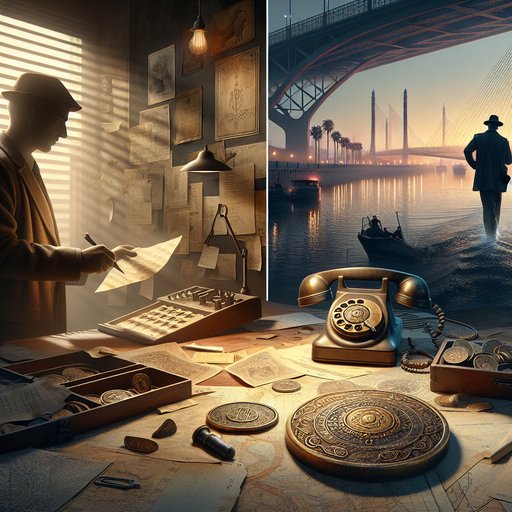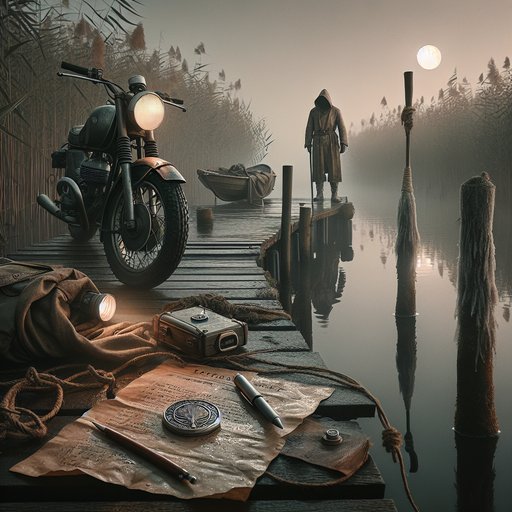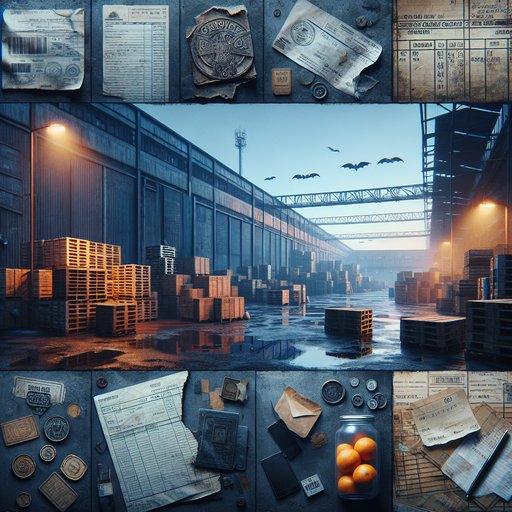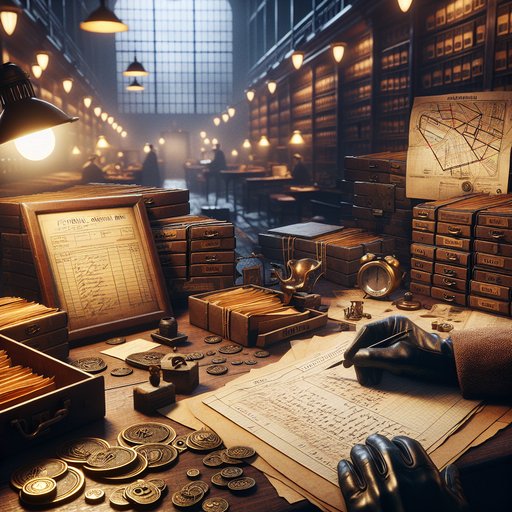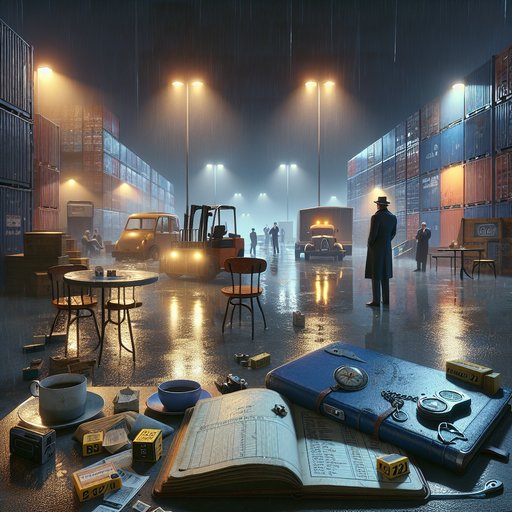CHAPTER 7 - The Bat Nights Unmasked and a Dynasty’s Quiet Fall
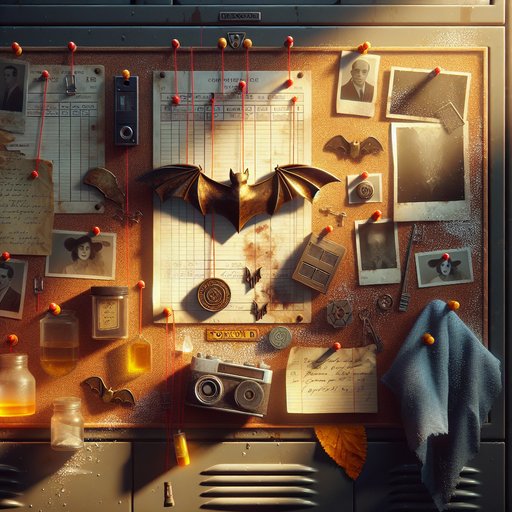
At sunrise on day one, Inspector Juan Ovieda—42, meticulous, and haunted by his brother’s overdose—was called to La Lonja de la Seda, where archivist Blanca Ferrán lay dead amid stone pillars. Sparse clues surfaced: a resinous orange oil scent, salt flecks, esparto fibers, a tampered camera, a missing phone, and a bronze‑and‑enamel token with Valencia’s bat. Political pressure mounted as Conseller Mateo Vives and shipping patriarch Víctor Beltrán hovered, and whispers of a missing donation ledger spread. On day two, Juan linked the token to a private maritime circle and the rumored Libro de Donativos, glimpsed a guard dusted with salt and esparto, and heard Blanca’s phone faintly beneath a basement grate—just as an injunction forced him back. Day three took him to the Albufera, where an old fisherman described “bat nights” of men in suits masking diesel with orange oil, paying with bat tokens, and meeting a silver‑haired man; a damp receipt marked Token 7B and “Almacén 14-1” pointed to a port warehouse before armed men boxed Juan in. Day four revealed a staged depot, sloppy evidence planted overnight, and a ledger folio naming Blanca and 7B; Juan felt the trap and wiped his board clean. Day five, helped by judicial clerk Nuria Paredes, he accessed sealed Operation Murciélago files and learned Almacén 14-1 referred to a judicial storage location; the files tied tokens to Beltrán, Vives, and Blanca’s sworn statement about “bat nights.” Day six, Juan retrieved evidence bag 7B—a hidden cache by sidelined prosecutor Andrea Luján with a microcassette, negatives, and a token—and learned that Murciélago was buried when it reached donors. Gunfire and arson followed; Nuria warned Ferrer controlled feeds; and a blue folder cross‑referenced Juan’s brother’s overdose to the very routes the dynasty used. In the final day, at a storage locker in El Cabanyal, Ferrer and Beltrán confronted Juan and Andrea. Juan played the tape of Ferrer and Vives discussing renumbered evidence and laid out the chain: tokens as scrip to turn donations into contracts, crates masked with orange oil, Vicent the porter opening doors, and security chief Sergi Ortolà strangling Blanca at La Lonja, pocketing her phone, and staging misdirection. To avoid scandal, a quiet reckoning followed: sealed warrants for Ortolà and Vicent, Ferrer flipping on Vives, the conseller resigning, and Beltrán stepping back under the guise of health. Justice arrived without headlines. That night, Juan pinned a stained bat pennant—oily and salt‑smudged—to his board, the city’s façades intact, yet their shadows briefly mapped.
The corrugated door of the El Cabanyal locker rattled as Comisario Ferrer’s men stepped inside, the salt air and diesel breath of the port pushing in after them. Víctor Beltrán y Rojas emerged from a slick of shadow in an immaculately cut coat, silver hair a burnished crest under the strip light, as Nuria Paredes stood tight-lipped with her hands folded around a key. Andrea Luján, eyes ringed with smoke and sleeplessness, kept close to me and the hollowed nautical almanac that hid the real donation ledger. I felt Saint Michael’s medallion warm against my palm through the pocket of my sand linen suit, the same pocket that held the microcassette and negatives Andrea had stashed inside evidence bag 7B.
My brown Oxfords squeaked on the concrete—a small, ridiculous sound in a room where three men decided what the city would remember. “Inspector,” Ferrer said, voice low as if we were in a sacristy. “Hand it over and we can all go home.” The two plainclothes shifted, revealing cold metal stitched into their waistbands, while Beltrán’s eyes did a slow, measuring sweep of the locker. I glanced at Nuria; she lifted her chin a fraction, the same gesture she’d used when she murmured my mother’s phrase on the phone, that little code to say danger without saying it.
The fishermen’s quarter that raised me had taught me to listen to what people didn’t want to say. I slipped the microcassette into a cheap dictaphone and pressed play, letting Ferrer’s voice fill the locker with bureaucratic sin. “Renumber 7B, move the ledger folio—Vives doesn’t want donors touched,” hissed out, followed by another timbre: the conseller’s cultured irritation. The tape didn’t just name them; it mapped the rot, from the private maritime circle to a philosophy of impunity that had made my brother’s grave.
“If you think I’ve brought everything here,” I said, eyes on Beltrán, “you underestimate how few friends a man with enemies like mine can afford. My copies have already gone to a juez de guardia I trust.”
Beltrán’s mouth thin-lined, but he didn’t move; he’d survived this long by letting other men step into the flood. “This is a misunderstanding,” he began, that old patrician balm, but I spread the ledger across a crate and slid out a glossy negative. The bat tokens weren’t souvenirs; they were scrip—bronze and enamel coins to tally favors and match “donations” to port contracts, every token a key to a crate that arrived under orange oil and left heavier than it came.
Blanca Ferrán had found the arithmetic, and someone had made sure she could never show it to a judge. I lifted the bat token from 7B and let it clink against the almanac’s hollow heart, a bright little chime that sounded like a nail in a lid. “Names are ink,” I said, “but fibers and salt are stubborn. Esparto twisted into a garrote leaves shine and roughness both.” I set a photograph on the ledger: a guard at the maritime club, sea salt crusting the hem of his trousers, orange oil slicking the scuffed toe of his boot, the same man who’d lurked by the basement grate where Blanca’s phone had vibrated like a trapped insect.
Sergi Ortolà—Beltrán’s security chief, paid in cash and favors—had followed Blanca from the archive, lured her to La Lonja with a promise of pages and made her silence part of the stone. The camera she’d tampered with had been his backup; the ledger she’d hidden inside the almanac was the one thing he hadn’t found. “You don’t need a confession if you have a rope,” I said. “But you will have one.”
Ferrer stared at Andrea like she’d set the match to his career.
“You used her,” he said, meaning Blanca, meaning all the young people who trusted institutions to tell their truth. Andrea didn’t flinch; she had the brittle poise of someone who’d broken once already and learned how to stand on the shards. Nuria stepped forward, voice steady. “Comisario, you signed 7B knowing what it was, and you told me to switch access logs,” she said.
“I will testify.” The locker compressed until there was only breath, paper, the salt stink—and the choice that had to be made: scandal or surgery. “We can make this quiet,” I said, and I meant it. “Sealed warrants for Ortolà and Vicent the porter. Ferrer preserves chain-of-custody and gives up the renumbering scheme.
Vives resigns by weekend, Beltrán steps back from the board for ‘health,’ and the club shutters for audit. The ledger remains under seal until charges are filed, the tokens go into evidence, and we don’t have to watch the city’s façade crack on the evening news.” Andrea’s jaw worked; she hated compromise, but she hated dead informants more. Beltrán’s nostrils flared, calculating the cost of losing a finger to save the hand. One of Ferrer’s men lunged—maybe because pride can’t stand arithmetic, maybe because a dynasty’s orders can arrive at a spine before a mind—and I moved like the run along the Turia taught me: quick, economical.
I pivoted, let the man’s shoulder kiss the locker door, and Andrea, bless her prosecutorial soul, swung a fire extinguisher from the wall with a graceless smack that buckled the other man’s knees. Nuria slid me her key as if we were passing a lemon at market, tiny, natural, subversive. “Enough,” Beltrán said, voice flat iron, raising a hand that stopped his world more reliably than a policeman’s badge ever could. “Enough.”
We went to ground the way you do when you want truth to outlast morning talk shows.
Andrea called a juez de instrucción we had both studied under in younger, less complicated days, and in a drab chamber at the Ciudad de la Justicia we produced relics like parishioners: the ledger, the negatives, the microcassette, the bat token, the torn folio that named 7B. The judge’s pen moved; secrecy orders and sealed warrants multiplied like fish. Ferrer, sweating in a navy suit that had seen too many marble corridors, lifted his eyes to me and said he was willing to make a statement. “I should have stopped it,” he said, voice smaller than I had ever heard it.
“I didn’t.”
At dusk, they took Ortolà at the maritime club’s basement, the humid air rich with orange oil where someone had slopped a drum to mop away diesel. He was coiling a length of esparto rope, hands grazing its pitted skin like he was rosarying sin. The warrant read like a hymn—Blanca’s name, La Lonja’s stone, the missing phone that had hummed in the grate until the battery went cold—and the smile he tried to borrow from hard men soured at the corners. In the search, they found a stained pennant with the club’s bat emblem, oil-slicked and salted, tacked above a desk that held a ledger of shifts written in a tidy, lying hand.
He rattled through denials until we put the fibers and time stamps in front of him, and then the story came like bad tide. He’d met Blanca at La Lonja, he said, because she’d promised a copy of the ledger if he returned her phone and helped her get her statement to Andrea. But orders are simple when they come stamped in money, and he had only a few moves. He strangled her fast with the esparto—an old trick he’d learned working lines on deck—dragged her into shadow, masked the strange scent of fear with orange oil, and pulled the camera plugs before rethreading one to show empty halls.
He pocketed the phone and slipped it down the grate later, kept a token in his pocket like a man keeps a lie small. When the law hit a warehouse, he built them a better one so they’d stop knocking. They found Vicent in the archive’s service corridor, hands blackened with toner, a soft old man who flinched at uniforms. He wept when Andrea showed him Blanca’s signature in the sign-in book he’d spliced with a razor, muttering about “donors” and a nephew who needed a job.
I understood him more than I wanted to; loyalty in this city isn’t a virtue or a vice, it’s a tide. He took the deal the judge offered: cooperation, a narrow charge, witness protection if it turned ugly. When they took Ferrer through a side door at dawn, he didn’t look at me; he looked at his shoes, the way men do when they’ve decided the last honest thing they will do in public is walk. By Friday, the city performed its theatre.
The conseller cited family matters and “the need to focus on pressing personal obligations” and stepped down. Víctor Beltrán, that iron spine wrapped in silk, announced a temporary withdrawal for unspecified health reasons and donated a sum to a rehabilitation program in a ward that had buried too many boys like my brother. The maritime club closed “for renovations,” and a small item in the official bulletin appointed a new audit committee that would, quietly, never reopen the old books. Andrea was named special counsel to review heritage donations, and Nuria transferred to a judge who did not flinch at old names.
I went back to HQ in my scuffed Oxfords, and nobody clapped, which is how I knew we’d done it right. Men who’d whispered on day one raised their eyes when I passed, and someone left a paper cup of café solo on my desk with no note. Valencia’s marble corridors still rang with committees and pressers and the hush of secrets, but something had shifted, like a door wedged open in a house that always smelled faintly of smoke. In my office by the port, I stripped off my narrow silk tie and breathed.
There is a victory particular to surgeons: the patient lives, the scar is clean, and nobody ever needs to know how close they came. At home, the walls waited with their chalk lines and antique maps and pinned fragments that had almost slipped into oblivion. I laid out the stained club pennant—bat emblem distorted by oil and salt—and fixed it to the corkboard with a brass tack, just below a faded photograph of La Lonja’s columns. I thought of Blanca’s hands on vellum, of my mother’s kindness braided with steel, of my brother’s last hours as a ledger line in a report somebody wanted misfiled.
The token from 7B clicked when I set it in a dish, a cheap sound that felt heavier than bronze. I slipped the Saint Michael medallion from my pocket and turned it in my fingers until the room went still. When sleep came, it was a clean slope instead of a cliff, and I woke before dawn and laced up with the easy ritual that had knit my days since I was a rookie in a borrowed suit. The Turia’s old riverbed was a ribbon of shadow and birdcall, palms and runners and bikes humming past as the sky bled citrus into blue.
I ran until the worry burned off and the arithmetic of the case dissolved into breath and footfall, and then I stopped under a bridge and called Andrea to hear her voice safe and fierce. I called Nuria to tell her that brave is not the same as reckless, and she laughed for the first time in days. The city’s baroque façades were still there when I jogged home, but for once I didn’t wonder what they were hiding; I just let the morning take me.


















